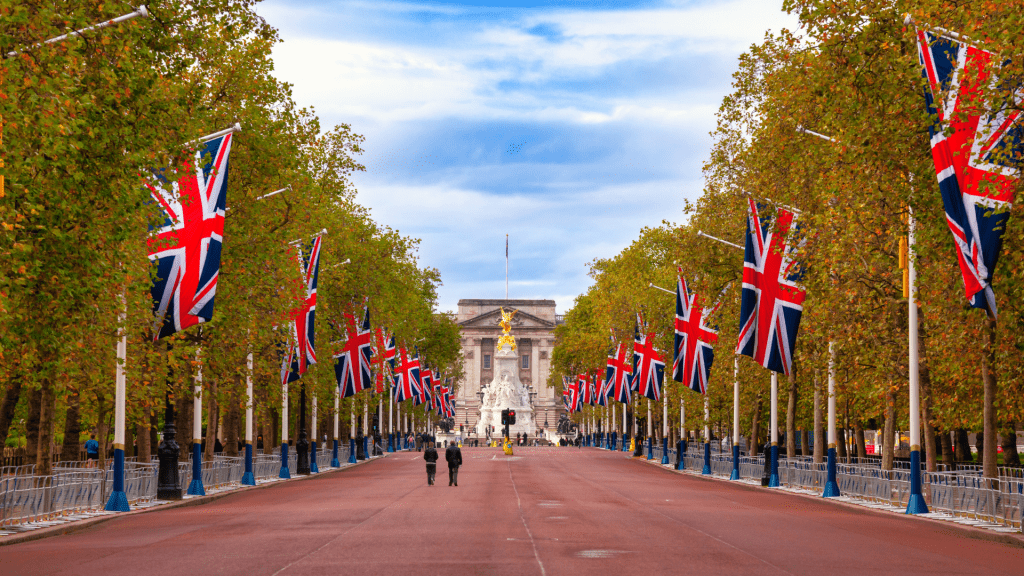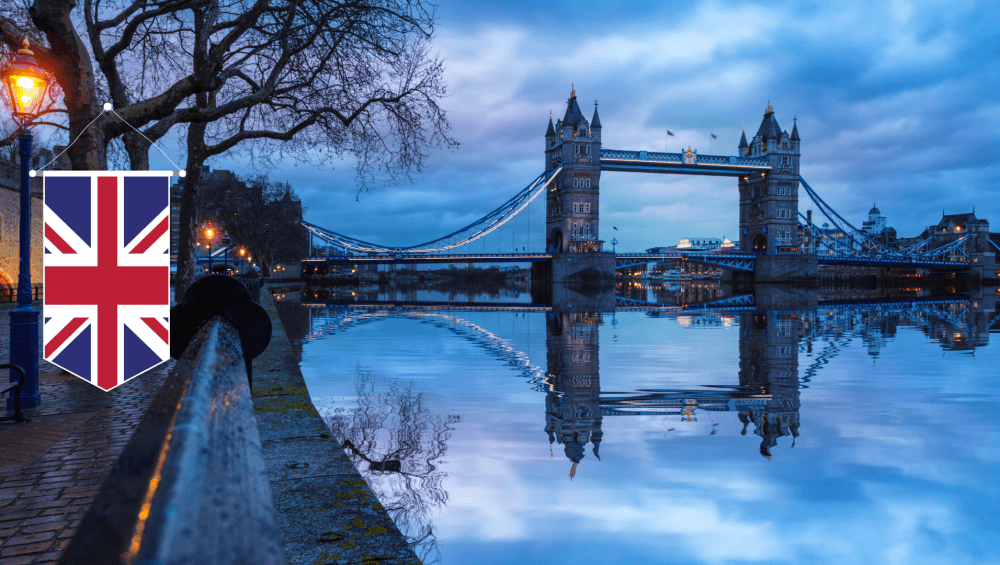If you are planning to travel or take a break in the UK, you might want to know when are Bank Holidays in 2024. Bank holidays are public holidays when most businesses and services are closed or operate on reduced hours. They are also a good opportunity to enjoy some leisure time with your family and friends.
In this blog post, we will explain when are UK bank holidays in 2024 and what they mean. We will also provide a table with the dates and names of the bank holidays for your convenience.
What are Bank Holidays?
The term “bank holiday” originated in the 19th century, when the Bank of England would close on days other than Sundays and Christmas Day. These days were also observed by other banks and financial institutions, as well as by many businesses and public services.
The first official bank holidays were established by the Bank Holidays Act 1871, which designated four days in England, Wales and Ireland (Easter Monday, Whit Monday, the first Monday in August and Boxing Day), and five days in Scotland (New Year’s Day, Good Friday, the first Monday in May, the first Monday in August and Christmas Day).
Since then, the number and dates of bank holidays have changed accordingly due to various reasons such as royal occasions, historical events, and cultural traditions. For example, in 2022, there will be an extra bank holiday on June 3 to mark the Queen’s Platinum Jubilee.
The Banking and Financial Dealings Act 1971, which applies to England, Wales, Scotland, and Northern Ireland, now regulates bank holidays. However, each country has some differences in their bank holiday schedules, as they have devolved powers to decide some of their own public holidays.
To celebrate the New Year, Scotland has a bank holiday on January 2, whereas St. Patrick’s Day is celebrated in Northern Ireland on March 17. Additionally, some local authorities or communities may observe non-official bank holidays, such as St George’s Day in England or St David’s Day in Wales.
What do Bank Holidays mean?
Bank holidays have different meanings depending on their origins and traditions. Some of them are religious festivals that commemorate important events in Christianity, such as Easter and Christmas. Others are secular celebrations that honour historical figures or events, such as the Queen’s Jubilee or VE Day. And some are simply seasonal occasions that mark the changing of the seasons, such as May Day or August Bank Holiday.
Regardless of their meaning, bank holidays are usually seen as a time to relax and have fun. Many people use them as an opportunity to travel, visit attractions, attend events or enjoy outdoor activities. Some bank holidays also have specific customs or rituals associated with them, such as eating hot cross buns on Good Friday, watching fireworks on New Year’s Eve or wearing a poppy on Remembrance Day.
However, not everyone gets to enjoy bank holidays the same way. Bank holidays are not necessarily paid holidays for workers, as it depends on their contract or employer. Some workers may have to work on bank holidays, especially those who work in essential services such as health care, transport or retail. In that case, they may be entitled to extra pay or a substitute day off.
Additionally, some businesses and services may be closed or operate on reduced hours on bank holidays, which may affect your plans or needs. For example, you may find that some shops, banks, post offices, libraries or museums are closed on bank holidays, or that some public transport services run on a different timetable. Therefore, it is advisable to check in advance before you travel or make arrangements on bank holidays.
How to make the most of Bank Holidays?
If you want to make the most of bank holidays, here are some tips and ideas to help you:
Plan ahead: If you want to travel or book tickets for attractions or events on bank holidays, it is better to do it well in advance, as they tend to be busy and expensive times. You can also look for deals or discounts online or through apps to save money and time.
Be flexible: If you want to avoid crowds or traffic jams on bank holidays, you can try to be flexible with your dates or destinations. For example, you can travel on weekdays instead of weekends, or choose less popular or more local places to visit.
Be creative: If you want to have fun on bank holidays without spending too much money or travelling too far, you can be creative with your activities. For example, you can have a picnic in the park, go for a hike in the countryside, play games with your family or friends, watch a movie at home or learn a new skill online.
Be mindful: If you want to enjoy bank holidays without stress or guilt, you can be mindful of your well-being and the environment. For example, you can take care of your physical and mental health by getting enough sleep, eating well and relaxing. You can also be respectful of other people and cultures by following the rules and regulations of the places you visit. And you can be eco-friendly by reducing your waste, recycling and using public transport or cycling.
When are UK Bank Holidays in 2024?
If you are planning to take some time off in 2024, you might want to know when are UK bank holidays? However, not all bank holidays are the same across the UK. There are different bank holidays for England and Wales, Scotland, and Northern Ireland.
In 2024, there will be eight bank holidays in England and Wales, nine in Scotland and ten in Northern Ireland. The table below shows the dates and names of the bank holidays for each country. This means that you need to check the dates for your region before you book your holiday or make any arrangements.
To help you out, we have compiled a table of bank holidays for each region of the UK for 2024. You can use this table as a reference to plan ahead and make the most of your time off.

When are Bank Holidays in England & Wales 2024?
In 2024, there will be 8 bank holidays in England & Wales.
| Date | Day | Bank Holiday |
|---|---|---|
| 01/Jan/2024 | Monday | New Year's Day |
| 29/Mar/2024 | Friday | Good Friday |
| 01/Apr/2024 | Monday | Easter Monday |
| 06/May/2024 | Monday | Early May Bank Holiday |
| 27/May/2024 | Monday | Spring Bank Holiday |
| 26/Aug/2024 | Monday | Summer Bank Holiday |
| 25/Dec/2024 | Wednesday | Christmas Day |
| 26/Dec/2024 | Thursday | Boxing Day |

When are Bank Holidays in Scotland 2024?
In 2024, there will be 9 bank holidays in Scotland.
| Date | Day | Bank Holiday |
|---|---|---|
| 01/Jan/2024 | Monday | New Year's Day |
| 02/Jan/2024 | Tuesday | 2nd January |
| 29/Mar/2024 | Friday | Good Friday |
| 06/May/2024 | Monday | Early May Bank Holiday |
| 27/May/2024 | Monday | Spring Bank Holiday |
| 05/Aug/2024 | Monday | Summer Bank Holiday |
| 02/Dec/2024 | Monday | St Andrew's Day |
| 25/Dec/2024 | Wednesday | Christmas Day |
| 26/Dec/2024 | Thursday | Boxing Day |
- Scotland has one extra bank holiday on January 2nd to celebrate the New Year.
- Scotland does not observe Easter Monday as a bank holiday.
- Scotland has one extra bank holiday on December 2nd to celebrate St Andrew’s Day.

When are Bank Holidays in Northern Ireland 2024?
In 2024, there will be 10 bank holidays in Northern Ireland.
| Date | Day | Bank Holiday |
|---|---|---|
| 01/Jan/2024 | Monday | New Year's Day |
| 18/Mar/2024 | Monday | St Patrick's Day |
| 29/Mar/2024 | Friday | Good Friday |
| 01/Apr/2024 | Monday | Easter Monday |
| 06/May/2024 | Monday | Early May Bank Holiday |
| 27/May/2024 | Monday | Spring Bank Holiday |
| 12/Jul/2024 | Friday | Battle of the Boyne / Orangemen's Day |
| 26/Aug/2024 | Monday | Summer Bank Holiday |
| 25/Dec/2024 | Wednesday | Christmas Day |
| 26/Dec/2024 | Thursday | Boxing Day |
- Northern Ireland has one extra bank holiday on March 18th to celebrate St Patrick’s Day.
- Northern Ireland has one extra bank holiday on July 12th to commemorate the Battle of the Boyne.
The Summer Bank Holiday is on a different date in Scotland than in England and Wales and Northern Ireland.
Guide to UK Bank Holidays 2024:
New Year’s Day
New Year’s Day is a common holiday in all four nations of the UK. It falls on January 1st and marks the start of the new year. People usually celebrate by staying up late on New Year’s Eve, watching fireworks, and making resolutions for the year ahead.
Good Friday
Good Friday is a common holiday in all four nations of the UK. It falls on the Friday before Easter Sunday and commemorates the crucifixion of Jesus Christ. Many Christians attend church services or observe fasting on this day. Some people also eat hot cross buns, which are sweet breads with a cross on top.
Easter Monday
Easter Monday is a common holiday in England, Wales, and Northern Ireland, but not in Scotland. It falls on the Monday after Easter Sunday and celebrates the resurrection of Jesus Christ. Some people enjoy outdoor activities such as egg hunts, picnics, or parades on this day.
May Day Bank Holiday
May Day Bank Holiday is a common holiday in all four nations of the UK. It falls on the first Monday of May and celebrates the arrival of spring. Some people participate in traditional customs such as dancing around a maypole, crowning a May queen, or making floral garlands.
Spring Bank Holiday
Spring Bank Holiday is a common holiday in all four nations of the UK. It falls on the last Monday of May and marks the end of spring. Some people use this day as an opportunity to take a short break or visit attractions such as gardens, parks, or museums.
August Bank Holiday
August Bank Holiday is a common holiday in England, Wales, and Northern Ireland, but not in Scotland. It falls on the last Monday of August and marks the end of summer. Some people enjoy festivals, carnivals, or fairs on this day.
Christmas Day
Christmas Day is a common holiday in all four nations of the UK. It falls on December 25th and celebrates the birth of Jesus Christ. People usually exchange gifts, decorate their homes with lights and trees, and have a festive meal with their family and friends.
Boxing Day
Boxing Day is a common holiday in all four nations of the UK. It falls on December 26th and follows Christmas Day. The origin of this name is unclear, but some theories suggest that it refers to giving boxes of money or goods to servants or charity. Some people use this day to shop for bargains, watch sports, or visit relatives.
In addition to these common holidays, there are some holidays that are specific to each nation of the UK. Here are some examples:
St Patrick’s Day
St Patrick’s Day is a public holiday in Northern Ireland, but not in England, Wales, or Scotland. It falls on March 17th and honours St Patrick, the patron saint of Ireland. People usually wear green clothes or accessories, display shamrocks or leprechauns, and attend parades or parties.
St David’s Day
St David’s Day is not a public holiday in any nation of the UK, but it is widely observed in Wales. It falls on March 1st and honours St David, the patron saint of Wales. People usually wear daffodils or leeks, display Welsh flags or dragons, and sing Welsh songs.
St George’s Day
St George’s Day is not a public holiday in any nation of the UK, but it is widely observed in England. It falls on April 23rd and honours St George, the patron saint of England. People usually wear red roses or crosses, display English flags or lions, and celebrate English culture.
St Andrew’s Day
St Andrew’s Day is a public holiday in Scotland, but not in England, Wales, or Northern Ireland. It falls on November 30th and honours St Andrew, the patron saint of Scotland. People usually wear tartan or thistles, display Scottish flags or unicorns, and enjoy Scottish food and music.
We hope this table and detailed explanation has helped you understand when are UK bank holidays in 2024, and what they mean. Whether you are looking for cultural events, religious festivals, or seasonal celebrations, there is something for everyone to enjoy.
You can also find more information about bank holidays on the official government website. Remember to check the dates for your region before you make any plans and we wish you a happy and safe time on your bank holidays!
How many bank holidays in England & Wales 2024?
In 2024, there will be 8 bank holidays in England & Wales.
How many bank holidays in Scotland 2024?
In 2024, there will be 9 bank holidays in Scotland.
How many bank holidays in Northern Ireland 2024?
In 2024, there will be 10 bank holidays in Northern Ireland.
Are bank holidays paid holidays for employees?
Bank holidays are typically paid holidays for employees in the UK. However, the specific pay policies may vary depending on the employment contract, industry, and individual employer. It’s important for employees to review their employment contracts or consult with their employers to understand their entitlements regarding pay on bank holidays.
How many bank holidays are there in the UK 2024?
In 2024, there will be eight bank holidays in England and Wales, nine in Scotland and ten in Northern Ireland















